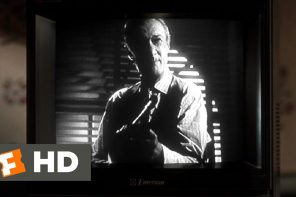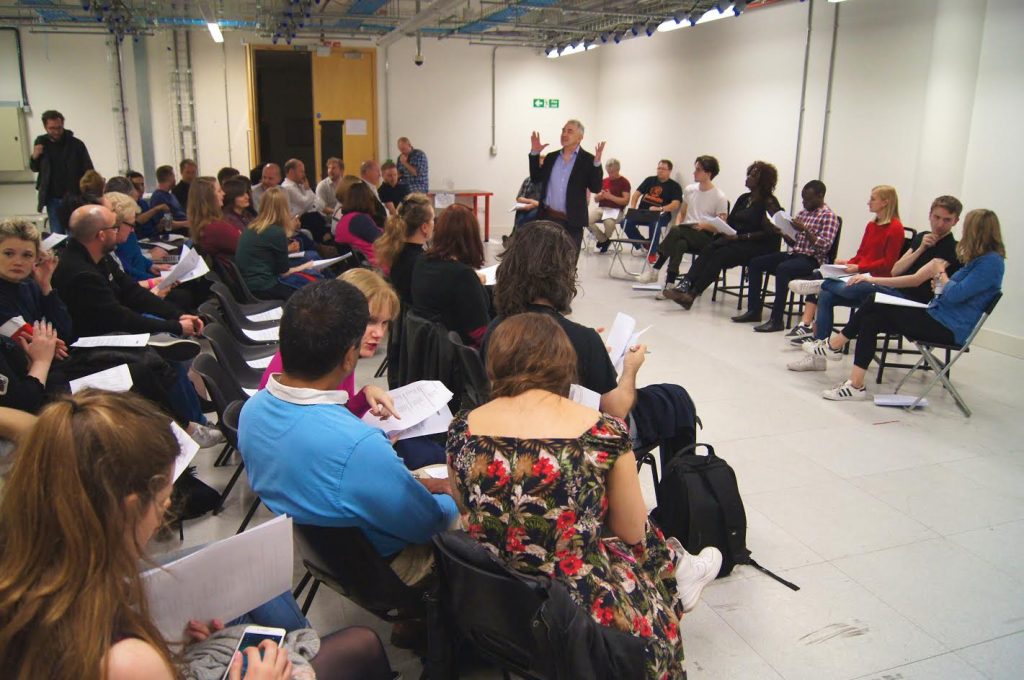How To Become A Writer
by Freddie Machin
You don’t recognise the wrapping paper. Green and red diagonal stripes, with a gold ribbon tied in a bow. You spin around and look across the office, hoping you might catch the person that left it for you. But there’s no one there. You remember the presents that were distributed over Christmas lunch last month. A novelty stapler for Karen in finance, a one-pint coffee mug for Steve in HR. You didn’t want a cheap pair of slippers sellotaped inside an old copy of Time Out anyway. So why did you feel left out when your name wasn’t called? The gift on your desk must be an afterthought. Wrapped with care as if to apologise. You yank off the bow, and shred the paper in a single swipe.
A sleek, silver ballpoint pen, and a matt, black notebook. Far too generous for secret Santa. You open the cover and read the message inside: Everyone has a story to tell… You sit in stunned silence. You look at the pen in your hand, then down at the page before you. You do have a story to tell. You would love to thrill a reader with your ideas. To excite an audience with your brilliant and uncommon thoughts. You just don’t know where to start. You don’t know what to write. As quickly as the thrill of writing intoxicated your senses, you feel it ebb away again. The pen drooping over your fist, like a magician’s wand in the hands of an idiot. You close the notebook.
In the kitchen, you stare blankly at the jumble of magnetic poetry words on the fridge door. You desperately want to compose a sentence. That’s all it would take. A single sentence to get you started. But it feels like staring into the vastness of space. Stars burn with promise and then fade away. Nothing comes. The kettle is about to boil so you quickly piece together four or five words at random, and the kettle clicks.
You drown a teabag in boiling water, and watch as it gasps for air. You listen to your colleagues noisily proclaiming their self improvement plans for the year. Dry January! Spanish lessons! A marathon by the end of the year! Oh please, you think, they won’t stick to it. And neither will you. You stab the teabag with your spoon. You’re not a writer. You can’t even finish a line of fridge poetry. You look back at your half-sentence, and hear the words amplified around the kitchen. Tom Cunningham from the second floor is leaning over your shoulder, reading your hasty composition out loud. “Don’t forget us lot when you’re a bestselling author!” He laughs. Then everybody laughs – the alcoholic, the xenophobe, and the couch potato. They all laugh. But you don’t laugh.
You return to your desk and open your notebook. You take the pen and write a dedication on the first page: For Tom Cunningham. You write down what just happened in the kitchen. Moment by moment. The fridge. The stars. The teabag. The laughter. You don’t think about it, you just write it down. Tom cares about no-one but himself, you write. You hurl insults at him. You call him every name under the sun before moving on to his family and friends, pets, past lovers, passing acquaintances – anyone that encounters him is tarred with your brush of vitriol. Then you close your eyes and think.
Your rage subsides. You decide you’re being too hard on Tom. He can’t help it if he’s thoughtless, and self-involved. You re-write the story from his point of view. You realise that Tom is insecure. That he’s awkward in company. And that’s what makes him behave like he does. You realise that the act of writing is about empathy. About humanity. It’s about sharpening your ability to read the world around you. You realise that committing to being a writer might not be about selling books, but about expressing yourself more clearly. You write that down too.
You write down the incident in the kitchen for a third time, because there’s nothing stopping you. This time from the point of view of the cup of tea, still stewing away on the work surface. You suddenly see the incident with crystal clarity. And realise that writing from your own experience is a great place to start but taking an objective point of view might allow you to get some distance between writer and subject. It might give you greater creative freedom. It might take you to the stars and back. You realise you do want to write. That you have lots of things you’d like to say. And that you already have the ability to do it.
You lean back in your chair triumphantly to read over what you’ve written, and instantly recognise the mistake you’ve made. It’s terrible. It’s possibly the worst thing you’ve ever read. It doesn’t make any sense. It’s confusing, and abstract, and far too long. And where are the jokes? Where are the well-drawn characters pursuing their needs with urgency and focus? Where are the minutely depicted landscapes and locations that you so enjoy in the books that you like to read?
Then you realise that Rome wasn’t built in a day. That it doesn’t matter if it’s absolutely awful because you’ve just filled three pages with your own thoughts. You will do the same again tomorrow, and the next day, you’ll even do it on the weekend. And if you miss a day or two you won’t be hard on yourself. And once you establish a regular habit of writing, you realise that you have also accumulated a great deal of confidence in your own ability. You begin sentences. And you finish them. You realise that writing is as simple as that. And that it sometimes takes three pages of abstract rubbish to complete one sentence that you’re happy with.
You walk back into the kitchen. You rescue the teabag from the bottom of your cup. You finish the sentence on the fridge. Tom looks up from his coffee “So what did you think of the gift?”
Thanks for Freddie Machin - writer and City Academy tutor - for this Christmas story about how to become a writer.
City Academy run adult writing classes - in the evening and weekend - Click here to find out more ».








